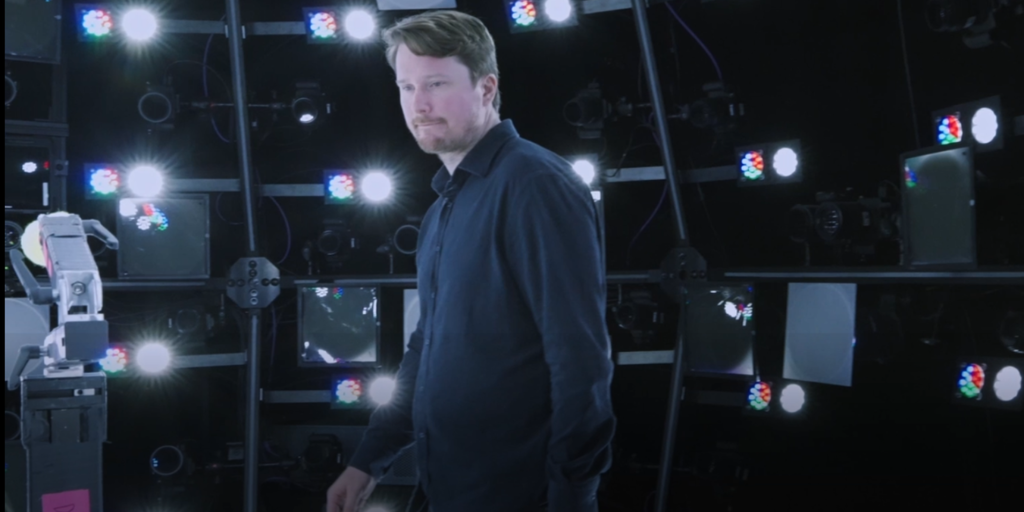### Summary
A new episode of Netflix's "Black Mirror" explores how celebrities will contend with AI replicas, raising concerns about regulations and potential brand risks. The use of AI-generated replicas has already been a topic of discussion among actors and performers, who are demanding better protections. This development could also have implications for regular people managing their own digital likenesses.
### Facts
- The latest episode of "Black Mirror" focuses on a woman named Joan who discovers a show on a streaming platform that features a digital replica of her, portrayed by actress Annie Murphy.
- Actors have been striking to demand protections from studios regarding generative AI, including regulations for AI-generated replicas.
- Some celebrities are considering the coexistence of their AI replicas, which could bring new monetization options but also increase brand risks.
- The use of AI-generated replicas may extend to regular people, as companies like Soul Machines offer products for designing autonomously-animated digital persons.
- Soul Machines has created digitized versions of celebrities like Carmelo Anthony, Mark Tuan, and Jack Nicklaus.
- Another company called Hyperreal allows individuals to create digital versions of themselves for future generations.
### Loading
Something is loading.
Tech firm Metaphysic has unveiled its new system, Metaphysic Pro, which aims to help actors and other individuals navigate the management of their personal data, including their likeness and voice, using generative AI algorithms to create their own face, voice, and performance data over time, while also addressing issues such as consent and compensation.
AI-powered stickers, image editing features, a new virtual assistant called Meta AI, and a lineup of AI characters are being introduced by Facebook to enhance connections, creativity, and expression for users on platforms such as WhatsApp, Messenger, Instagram, and Ray-Ban Meta smart glasses.
Meta has partnered with celebrities and influencers to transform them into AI-powered chatbots with distinct personalities and profiles, including Snoop Dogg, Charli D’Amelio, Tom Brady, and Paris Hilton. These celebrity chatbots will be available on Instagram and Facebook, providing entertainment and connection, with voice capabilities expected in the future. Additionally, Meta has announced AI image-editing features for Instagram and new customized stickers across its platforms.
Meta Platforms showcased its new generative AI tools, including AI assistants, chatbots, and image generators, which could increase engagement with its apps and drive revenue for its messaging businesses, potentially propelling the company back into the $1 trillion club.
AI-altered images of celebrities are being used to promote products without their consent, raising concerns about the misuse of artificial intelligence and the need for regulations to protect individuals from unauthorized AI-generated content.
Meta has unveiled "Meta AI," a generative AI assistant featuring celebrity alter egos like Kendall Jenner, Snoop Dogg, Tom Brady, Naomi Osaka, Chris Paul, and Paris Hilton to enhance user engagement with AI.
Meta is reportedly paying a top creator up to $5 million for six hours of work in the studio to use their likeness as an AI assistant, as part of the company's new feature that features celebrities' images for its chatbots.
Meta has introduced an AI chatbot named Billie that closely resembles Kendall Jenner, sparking fears about the replication of celebrities through artificial intelligence.
Meta, formerly known as Facebook, is reportedly paying a top creator up to $5 million over two years for using their likeness as an AI assistant, as the company introduces 28 AI chatbots with different personalities that use celebrities' images.
AI chatbots pretending to be real people, including celebrities, are becoming increasingly popular, as companies like Meta create AI characters for users to interact with on their platforms like Facebook and Instagram; however, there are ethical concerns regarding the use of these synthetic personas and the need to ensure the models reflect reality more accurately.
Meta's AI characters, which include famous celebrities playing fictional roles, are essentially just standard chatbots that interact with users through messaging platforms like Facebook Messenger, Instagram, and WhatsApp. However, their limited contextual reactions and reliance on pre-recorded video undermine the experience and raise questions about privacy and data.
